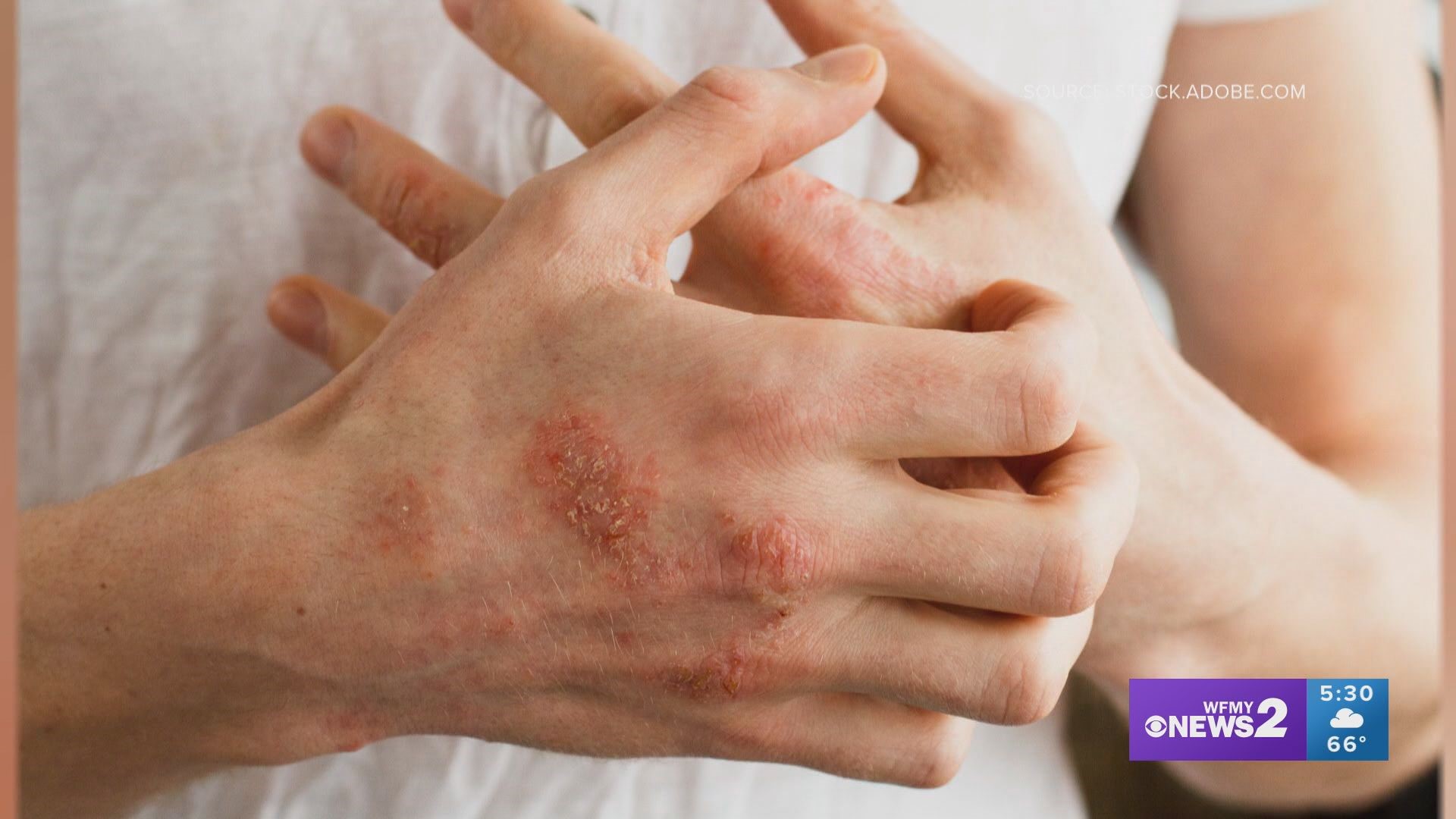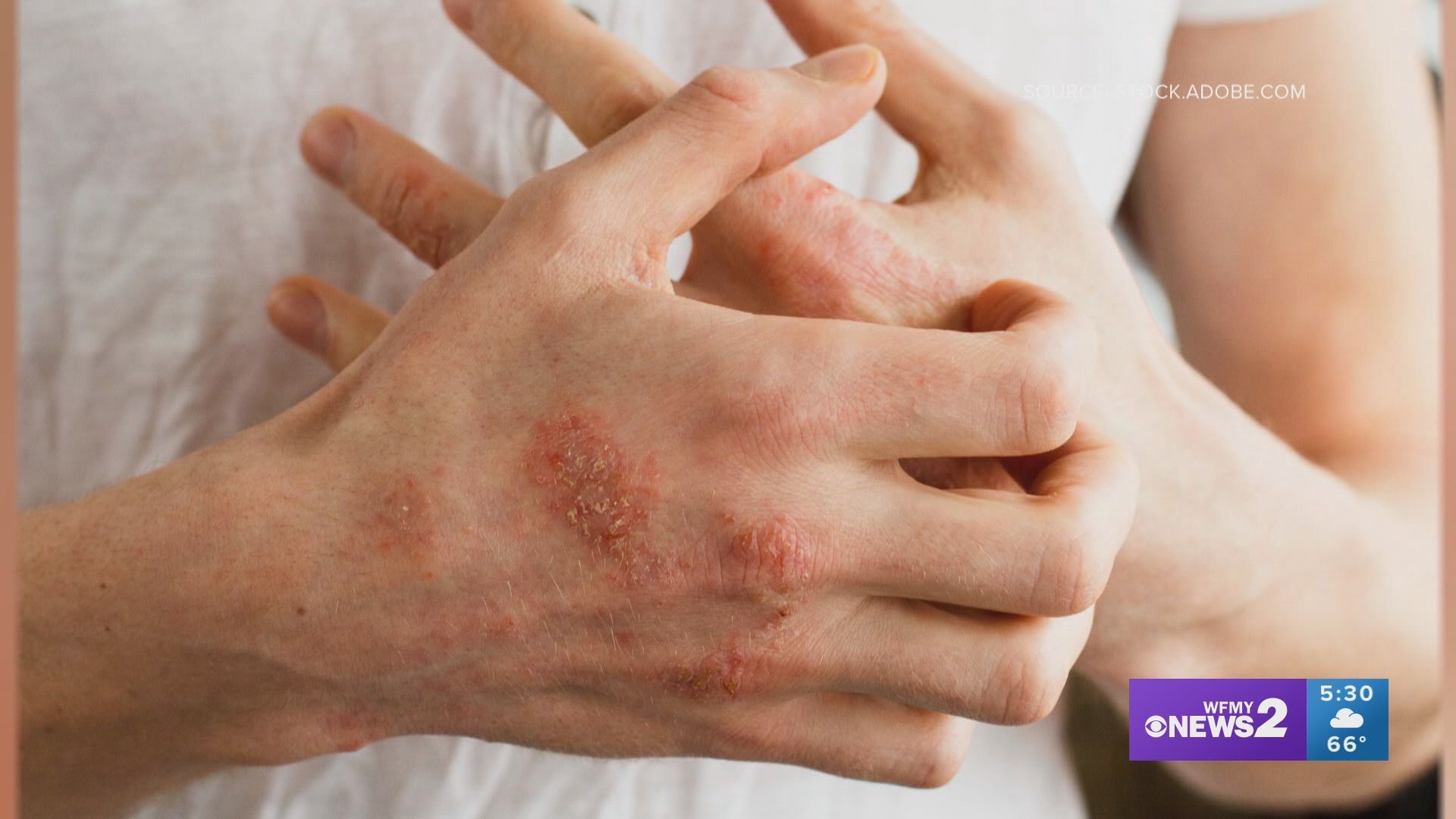GREENSBORO, N.C. — Eczema is an itchy and painful skin condition that thousands of Americans deal with every day. In fact, the National Institute of Allergy and Infectious Diseases estimates about 30% of the entire population deals with the skin condition.
While the symptoms present themselves on the skin, it's not a surface-level issue, it is one that needs to be treated from within.
Dr. Ana-Marie Temple is a pediatrician who has treated thousands of patients dealing with eczema.
She breaks down several big topics including how stress and what you eat can really make a difference when it comes to your skin.
Five Ways to Treat Eczema
- Remove processed foods
- Decrease sugar to less than 24 grams per day
- Replace dairy (the most common offender) with things like avocados, salmon, coconut milk
- Add in Vitamin D and Zinc - two of the most common deficiencies in those with eczema
- Manage your stress
Why Stress Contributes to Eczema
Stress is a big trigger for those dealing with eczema because it increases your cortisol levels, which can then spiral into other side effects.
- High cortisol levels cause us to crave sugar and carbs and processed foods
- High cortisol levels prevent us from getting a good night's sleep which is imperative for the healing of eczema
- Cortisol triggers a cascade of inflammation in the immune system
Managing Nutrition as a part of Treatment
Another big player in healing eczema is nutrition. Dr. Temple said it's because eczema is not just a surface-level issue, you must treat it from within, like by looking at what you eat.
- Things like food coloring, artificial flavors, preservatives, and various oils can irritate the skin
- Sugar irritates the skin
- There is a large percentage of people whose eczema is triggered by food allergies and sensitivities


